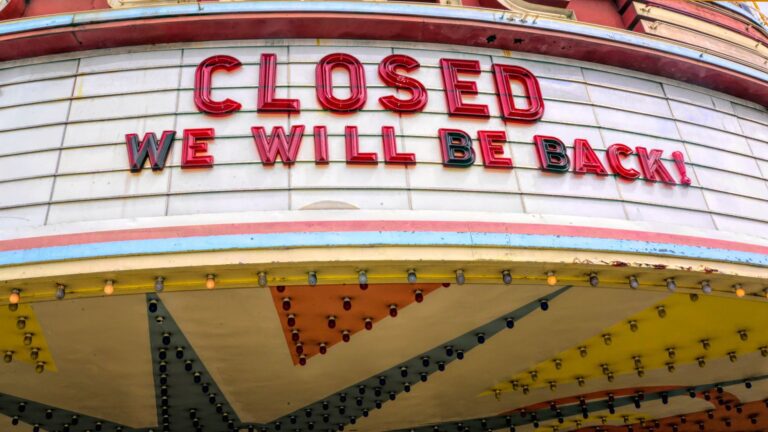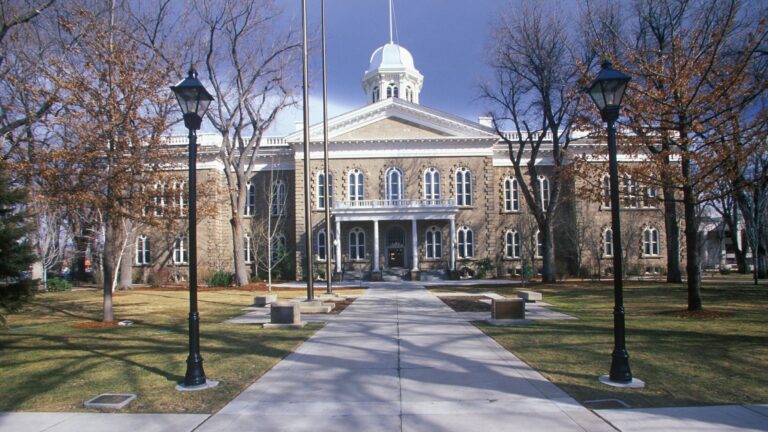The Nevada Department of Health and Human Services (NV DHHS) recently released a sobering report highlighting the enduring impacts of the COVID-19 pandemic. The Center Square’s latest article delves into the report, which says it may take a long time to recover from the pandemic’s economic, education, and behavioral health impacts.
Impact of COVID
COVID-19 emerged as the third-leading cause of death in Nevada between 2020 and 2022, trailing only heart disease and cancer. The pandemic’s toll was stark: over 900,000 cases and more than 12,00 deaths among Nevada residents. These impacts are devastating, and even though they occurred a few years ago, Nevadans are still reeling from the aftermath.
Beyond its catastrophic epidemiological toll, the pandemic wreaked havoc on Nevada’s economy, education system, and behavioral health. Locking people in their homes for months didn’t stop the pandemic and resulted in more harm than good.
Economic Fallout
The economic repercussions were profound, amounting to a staggering $15 billion.
Former Governor Steve Sisolak’s response to the pandemic can only be described as an overreach of power. Though it could appear that the intent behind it was for the greater good, Sisolak prioritized mitigating one risk—COVID-19 transmission—while neglecting the broader array of risks inherent in a complex society.

Even then, his approach did not stop the pandemic in its tracks.
A balanced plan, considering public health imperatives and economic stability, was urgently needed. Such a plan could have mitigated the cascading effects witnessed across Nevada; the NV DHHS now reports that.
Government Response: Overreach and Impact
Sisolak’s lockdowns did nothing to stop COVID. They did, however, inflict widespread harm upon working-class Nevadans. Sisolak’s policies have severely infringed on our civil liberties, which is cause for serious concern. Although the measures were intended to mitigate the impact of the global pandemic, their repercussions have been extensive.
By June 2020, Nevada’s unemployment rate had more than doubled, reaching 31% in April. Additionally, the pandemic has likely led to a decrease in real wages for workers, as wage growth has struggled to keep pace with inflation. The damage was so profound that researchers noted that “most industrial sectors were negatively impacted by the number of jobs and wages that were lost due to these closures.”
Let the People Choose
Nevada Policy’s Director of Research, Geoffrey Lawerence, was quoted several times in The Center Square’s report on the NV DHHS’ findings. Lawrence noted, “It’s, therefore, no surprise that economic uncertainty abounded, student achievement plummeted, deaths of despair surged, and hundreds of thousands of previously self-sufficient Nevadans were left to rely on a dysfunctional public support system that couldn’t even process claims timely just to meet their basic needs.”
The closure of businesses and subsequent job losses exacerbated financial hardships, pushing many into reliance on government aid systems ill-equipped to handle the surge in claims. Empowering individuals to make informed decisions based on transparent information would have been more effective.

“A better role for the government during COVID would always have been to advise and inform of the risks inherent with the disease so that free individuals could take the precautions they deemed necessary,” Lawernce remarked.
Giving your constituents agency over their everyday lives could have led to a completely different outcome. We’ve also seen the everlasting impacts on education.
Impacts on Education
The pandemic wrought profound disruptions in Nevada’s education system, compelling widespread school closures that disproportionately affected students across socioeconomic backgrounds. According to the NV DHHS report, elementary students experienced substantial declines in academic performance, with fourth graders’ scores dropping by over six points on national assessments. Middle and high school students also faced challenges, albeit to a lesser extent, highlighting the pandemic’s uneven impact on different age groups.
Initially implemented to curb virus transmission, remote learning exacerbated educational inequities. Students from disadvantaged backgrounds faced increased barriers to accessing online education due to digital divide issues, including lack of reliable internet access and appropriate devices.
The resulting learning loss is expected to have long-term consequences on students’ educational attainment, future earnings potential, and socioeconomic mobility.
A Mental Strain
Moreover, students’ social and emotional well-being suffered significantly during the pandemic. Rates of mental health issues among children, including anxiety and depression, soared as they grappled with isolation from peers, uncertainty about the future, and disruptions to routine schooling.
The mental health of not only children and young adults has declined but also that of adults. Social isolation and the economic impacts of the pandemic have contributed to this decline among Nevadans.

Initially, the message to the public was to avoid hospitals except for severe health problems. “However, after hospital capacity opened again, mental health, suicide, and substance use related visits increased, especially for the youth population,” the report said.
We’ve seen a shift where single-person rule has replaced representative democracy. What started as a suspension of democratic norms to manage the pandemic has turned into excessive regulations to control even the slightest risk of contagion. The impact reaches further to lost jobs and economic recovery, substance abuse to suicide, and effects on student test scores to changes in crime rates.
Path Forward: Balancing Health and Economic Resilience
Looking ahead, Nevada policy advocates for a more balanced approach to public policy that prioritizes public health and economic resilience. Lawrence emphasized the need for proactive governance that anticipates and mitigates risks without compromising individual liberties or economic vitality. He stressed, “In reality, we live in a world of numerous uncertainties, but people have been able to adapt to these uncertainties by developing elaborate, entrepreneurial systems to produce and deliver to people the things they need to overcome the challenges presented by the natural world.”
The challenge, however, lies in balancing risk mitigation with the broader social and economic costs.
It’s akin to implementing a single-digit speed limit to reduce traffic accidents—theoretically effective but socially intolerable. Similarly, the CDC’s recommendation for an alcohol-free lifestyle to eliminate health risks underscores the impracticality of extreme measures in real-world scenarios.
A Call for Responsible Governance
Nevada’s use of funds from the American Rescue Plan Act (ARPA) to repay federal loans and modernize support systems signifies progress toward resilience. However, there are still challenges in ensuring transparency and accountability in governance.
Nevada has historically struggled with transparency and openness.
In 2016, the Nevada State Legislature, backed by bureaucrats at the Legislative Counsel Bureau, astonishingly claimed that it does not view itself as a “government entity.”

How unbelievable is that?
Regrettably, the damage caused by Sisolak’s failed policies cannot be undone. Nevadans must be represented by leaders who can boldly stand against hysteria and groupthink in the face of statewide and national catastrophes. We must never again sacrifice our children and vulnerable individuals to appease the unfounded fears and anxieties of adults.
It is important for Nevada’s leaders to recognize this reality rather than repeat past catastrophes. Addressing any potential issues at home is crucial for good governance and ensuring the necessary protections for the future.
A Call for Transparency and Accountability
Nevada Policy is committed to advocating for policies that empower individuals, promote economic vitality, and uphold principles of limited government.
As we navigate the aftermath of COVID-19, it is crucial to prioritize transparency, accountability, and prudent governance. Nevada can build a more resilient future by learning from past challenges, protecting public health, supporting economic recovery, and safeguarding individual freedoms during times of crisis.

Sign up for Nevada Policy’s weekly emails to stay up to date on the most pressing issues facing Nevada.
